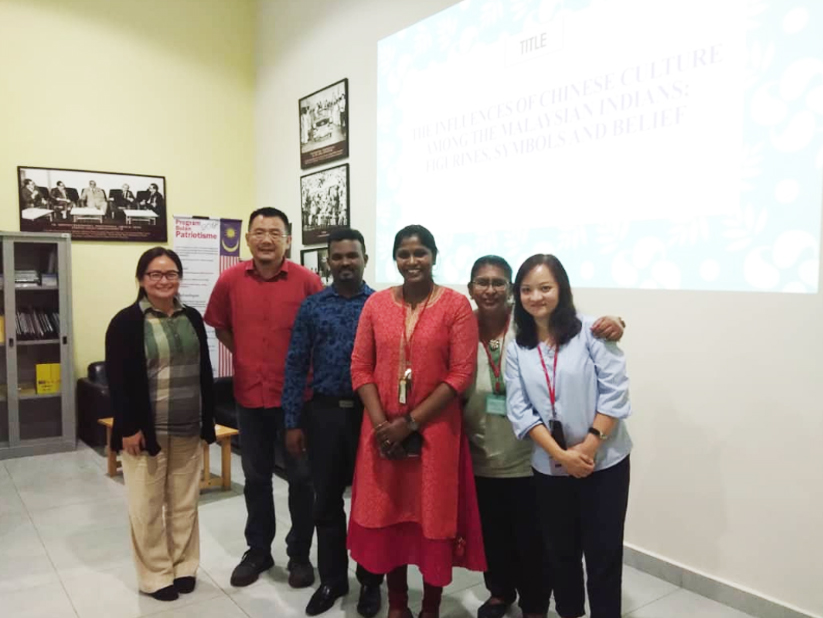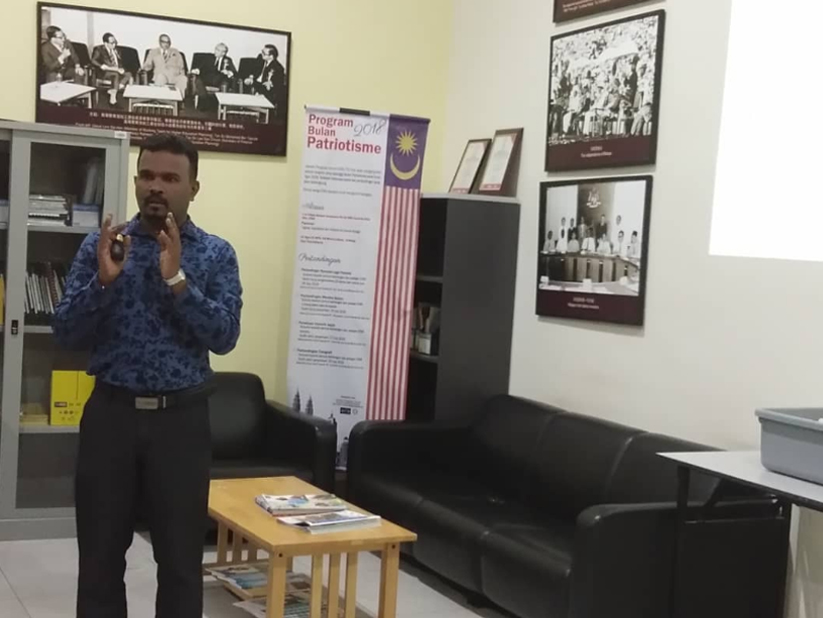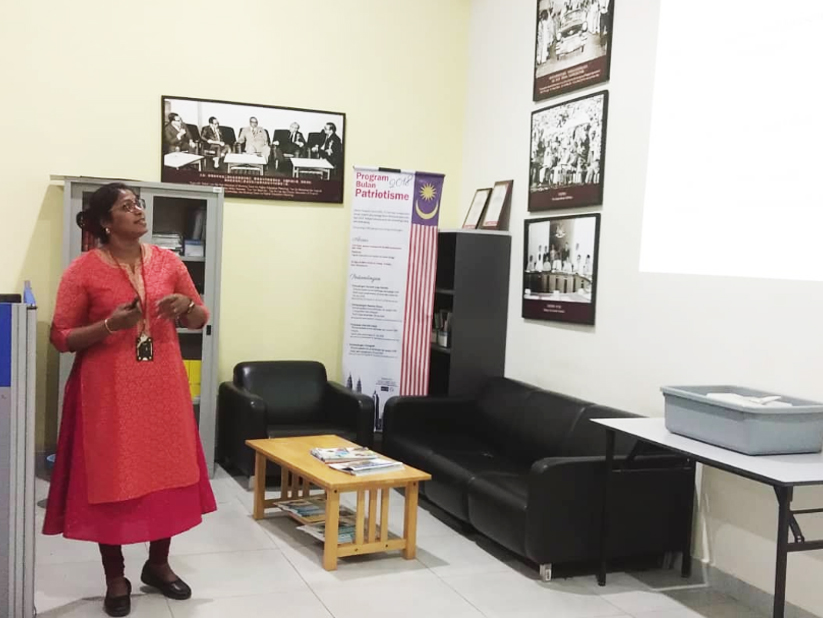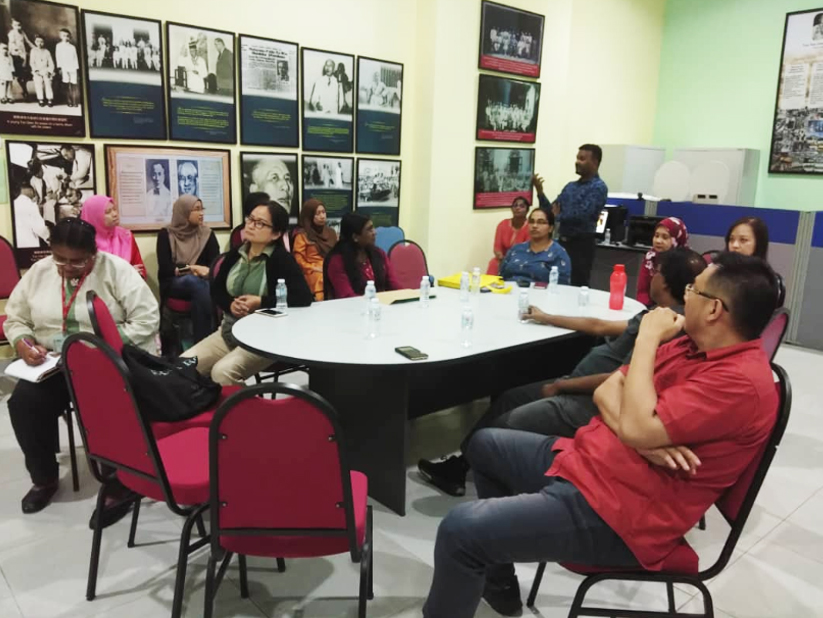


Second from left: TCLC Chairperson Assoc Prof Dr Chin Yee Mun, Dr Silllalee and Tamil with some of the participants
A talk titled “Cross-cultural beliefs and practices among Chinese and Indian” was organised by Tun Tan Cheng Lock Centre for Social and Policy Studies (TCLC) in collaboration with the Faculty of Creative Industries (FCI) Department of General Studies on 27 February 2019 at UTAR Sungai Long Campus.
Invited to speak were FCI Department of Modern Languages Dr Silllalee Kandasamy and FCI Department of General Studies Lecturer Tamil Arasi Muniandy. Dr Silllalee has published numerous journals and conducted various talks at conferences and symposia. Tamil’s research focus is in the areas of Early Childhood Education and Ethnic Relations.
The objectives of the research are to analyse some of the characteristics that were adopted by the Indian community from the Chinese community and to understand the reasons behind the adaptation and practices.

Dr Silllalee
During the talk, Dr Silllalee and Tamil explained the similarities between the Chinese and Indians’ cultural practices in relation to their symbols and beliefs. The talk also elucidated how the Chinese and Indian community who lived together, came to accept certain practices that eventually strengthened the relationship between the two races. “The Indian and Chinese are contributing to each other because cultural exchange is not one-way traffic. When we give something, we also learn from each other in return,” said Dr Silllalee.

Tamil
Tamil said, “The main reason why the two cultures influence one another is because of the existence of cultural harmony. It allows the acceptance of both races to occur harmoniously without any prejudice or pressure.” Quoting from a famous Tamil quote, ‘Yathum Ore Yavarum Kelir’, meaning ‘To us, all towns are one, all men are our kin’, she said, “Every human is a world citizen.” She also shared the concept of a borderless world which is known as globalisation.

Interactive Q&A session
© 2019 UNIVERSITI TUNKU ABDUL RAHMAN DU012(A).
Wholly owned by UTAR Education Foundation Co. No. 578227-M LEGAL STATEMENT TERM OF USAGE PRIVACY NOTICE